21 Types of Ticks in the UK (With Pictures)
-

- Last updated:
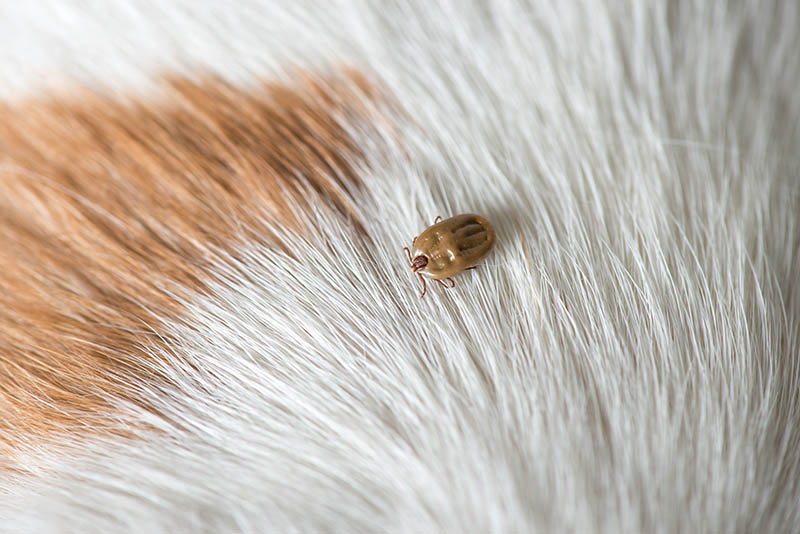
There are many species of ticks in the UK, but it is the sheep tick that is the most common, responsible for the most reported tick bites in the UK, and that is known to spread Lyme disease. If you’re interested in learning more, below are different types of ticks in the UK, along with details of habitat, typical hosts, and the areas of the UK where they are most likely to be found.

The 21 Types of Ticks in the UK
1. British Dog Tick
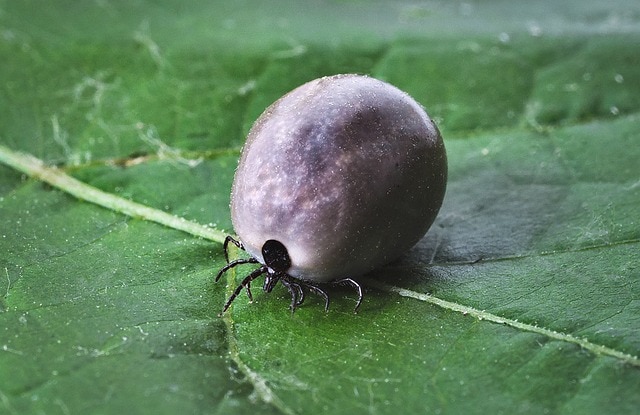
| Latin Name: | Ixodes canisuga |
| Location: | Nationwide |
The British dog tick is found primarily on foxes but also on badgers, sheep, horses, cats, and, of course, dogs. They are often found living in kennels. Males grow to approximately 2 millimeters in length and females to 3 millimeters in length, and their size means that they can only be identified under a microscope. The British dog tick is also known as the fox tick.
2. Brown Dog Tick
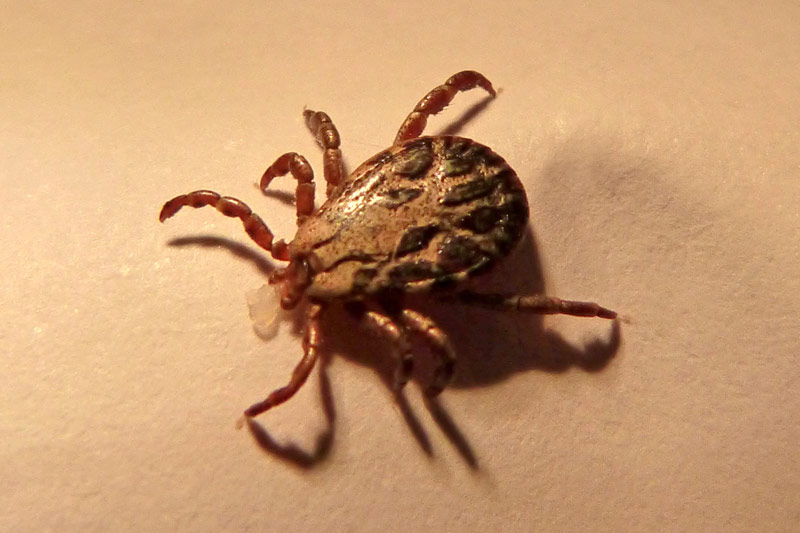
| Latin Name: | Rhipicephalus sanguineus |
| Location: | Southern England |
Like the British dog tick, the brown dog tick lives on dogs and is also found on foxes and cattle. It is most commonly found in the South of England and human bites from this tick have been recorded. They usually live in sheltered places, including kennels.
3. Cormorant Tick

| Latin Name: | Ixodes unicavatus |
| Location: | Nationwide |
Primarily found on the cormorants from which they get their name, cormorant ticks can also be found on other marine birds. They are found throughout the UK and are typically located in nesting sites and on cliffs. There are no records of cormorant tick bites on humans.
4. Hedgehog Tick
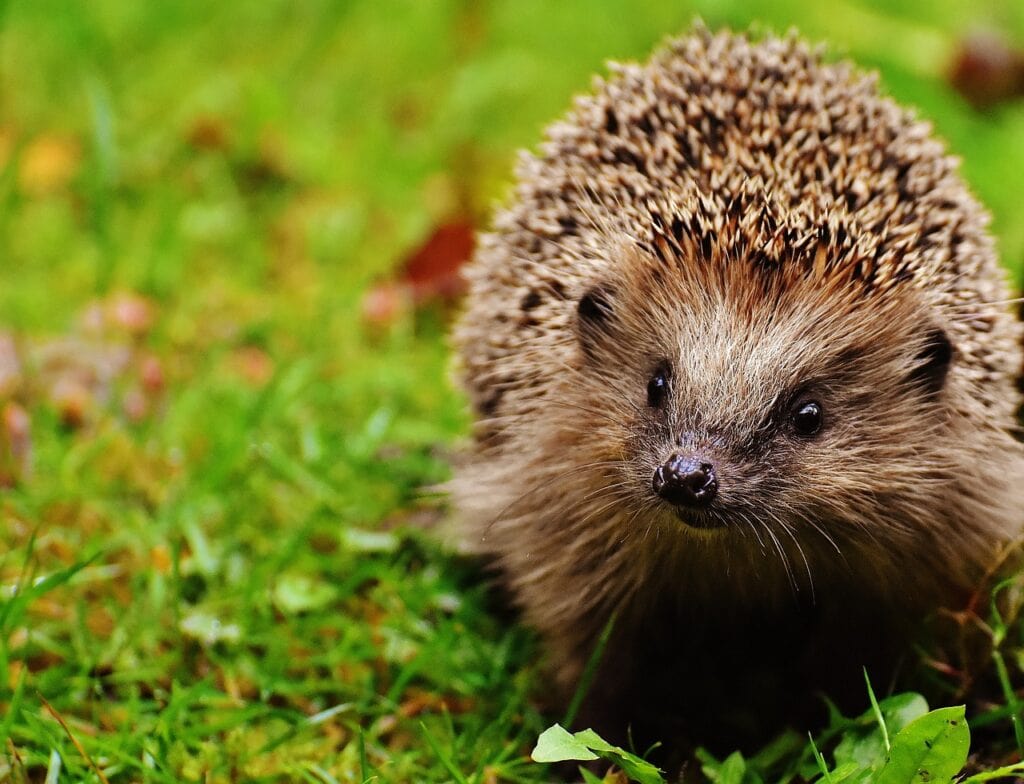
| Latin Name: | Ixodes hexagonus |
| Location: | Nationwide |
Most often found in Southeast England, the hedgehog tick can be seen less frequently throughout the rest of the country. Hosts include hedgehogs but also foxes, dogs, cats, rodents, and birds. The hedgehog tick is known to bite humans and is known to be one of the species that can transmit Lyme disease to humans.
5. Long-Legged Bat Tick
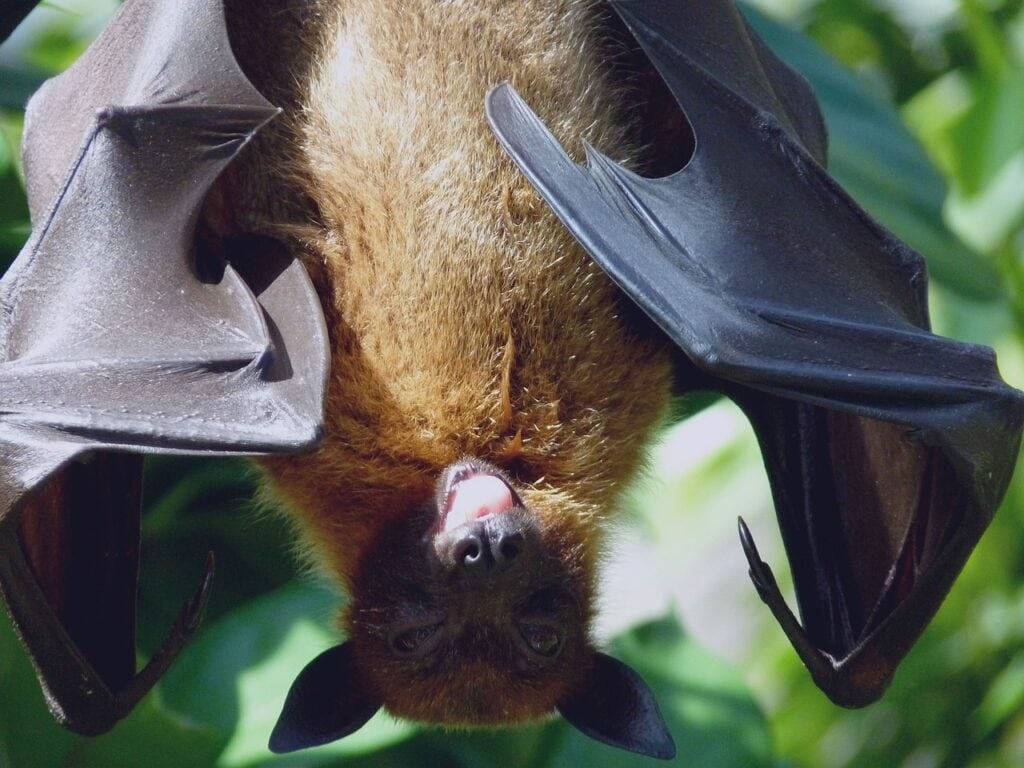
| Latin Name: | Ixodes vespertilionis |
| Location: | Various |
The long-legged bat tick can be found in parts of North Wales, Southwest England, and Ireland. It is attracted to various species of bat but especially to the horseshoe bat and is most often found in bat nests. It is not believed to bite humans.
6. Marsh Tick
| Latin Name: | Ixodes apronophorus |
| Location: | Various |
Found on the Norfolk Broads as well as in parts of the Northeast and Scotland, the marsh tick can be found on small mammals including the water vole as well as in their nests. The species is not believed to bite humans.
7. Northern Bird Tick

| Latin Name: | Ixodes caledonicus |
| Location: | North England, Scotland |
Found in the North of England and parts of Scotland, the Northern bird tick lives on cliff birds and in their nests, as well as on surrounding rocks. It is not believed to bite humans.
8. Ornate Cow Tick
| Latin Name: | Dermacentor reticulatus |
| Location: | Southwest England, Wales |
The ornate cow tick is located in Southwest England and in parts of Wales. It lives on domestic animals including cats and dogs, as well as wild animals like foxes and hedgehogs. It can bite humans and can be found in grasslands and woodlands.
9. Passerine Tick
| Latin Name: | Ixodes frontalis |
| Location: | Various |
Rarely found in parts of Scotland, the passerine tick is most often found in Southern England and may also be found in the Scilly Isles and on the Isle of Man. Its hosts are passerine birds, and the tick will usually live in the nesting and roosting areas of the birds. It does not bite humans.
10. Pigeon Tick

| Latin Name: | Argas reflexus |
| Location: | Southeast England |
Although it has been reported to occasionally bite humans, the pigeon tick is more of a threat to the animals it hosts on, which includes pigeons as well as other birds such as swallows and swifts. It is found in Southwest England and most often in areas where its hosts roost.
11. Puffin Tick

| Latin Name: | Ixodes rothschildi |
| Location: | Southwest England, Wales |
Found in Southwest England and in parts of West Wales, the puffin tick is found on puffins but also on other coastal birds. It is not believed to bite humans and is usually found in the burrows of nesting birds.
12. Rabbit Tick

| Latin Name: | Ixodes ventalloi |
| Location: | Southwest England |
The rabbit tick is usually found on rabbits in Southwest England, including the Isles of Scilly and Lundy Island. However, it may also be found on other animals including cats and hedgehogs, as well as in the nests of its hosts. The rabbit tick is not believed to bite humans.
13. Red Sheep Tick

| Latin Name: | Haemaphysalis punctata |
| Location: | Southeast England, Wales |
The red sheep tick treats sheep, cattle, and some other mammals and birds as hosts. They can be found on their hosts, in their nesting sites, but also in surrounding habitats. The red sheep tick has been reported as having bitten humans, but only rarely, and is most often found in Southeast England as well as in parts of Wales.
14. Sand Martin Tick

| Latin Name: | Ixodes lividus |
| Location: | England, Ireland |
The sand martin tick is found on sand martins, swallows, and house martins, as well as in their nests and burrows. They do not bite humans and are found in England and Ireland with rare instances in Scotland.
15. Seabird Tick

| Latin Name: | Ixodes uriae |
| Location: | Nationwide |
The seabird tick is found on seabirds and may sometimes be found on other birds. The tick is found across the whole of the UK although typically only on or near the coast. It can bite humans.
16. Sheep Tick

| Latin Name: | Ixodes ricinus |
| Location: | Nationwide |
The sheep tick is one of the most common ticks in the UK and is found throughout the country. It is also the tick species that most commonly bite humans and is known to spread Lyme disease when it does so. It is found on a variety of animals including domestic and wild animals, reptiles, and amphibians.
17. Short-Legged Bat Tick
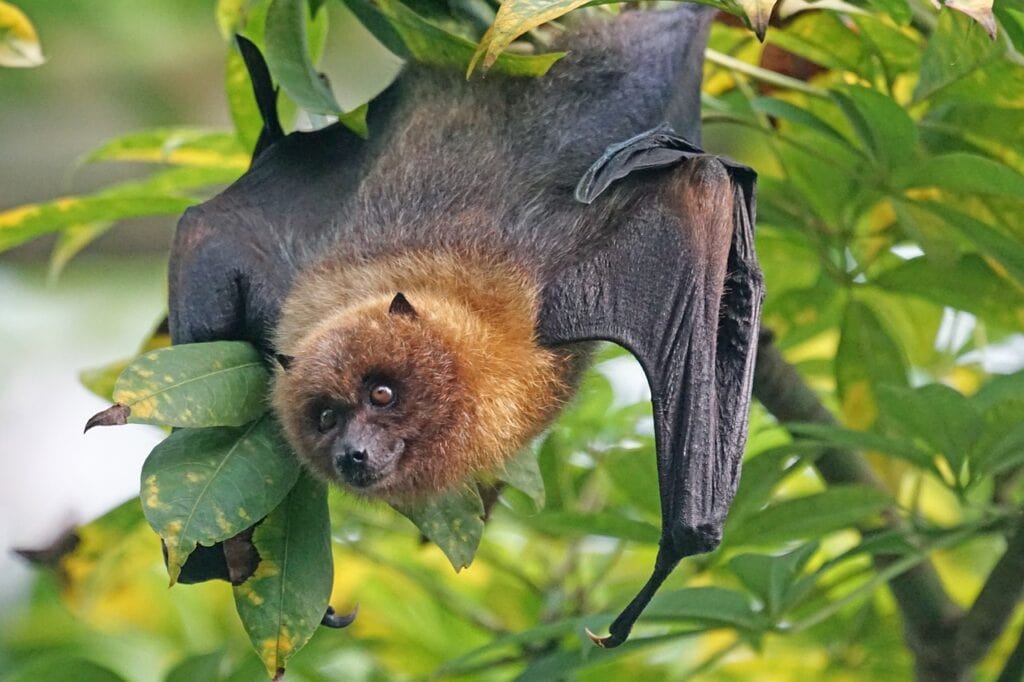
| Latin Name: | Carios vespertilionis |
| Location: | England, West Scotland |
The short-legged bat tick is another tick species that is found on bats, but it is also occasionally found on species of birds. It can be found throughout England and in West Scotland. It does not bite humans
18. Southern Rodent Tick
| Latin Name: | Ixodes acuminatus |
| Location: | South England |
The Southern rodent tick lives on rats and small mammals, as well as in their nests and burrows. It does not bite humans and can be found in Devon, Cornwall, and on the Isles of Scilly.
19. Tortoise Tick

| Latin Name: | Hyalomma aegyptium |
| Location: | Mid England, South England, Ireland |
The tortoise tick is an introduced species that is found on tortoises but can occasionally be found on some lizards as well as domestic pets like dogs and cats. It is also found on horses and hedgehogs, does not bite humans, and can be found in mid and South England, as well as Ireland.
20. Tree-hole Tick
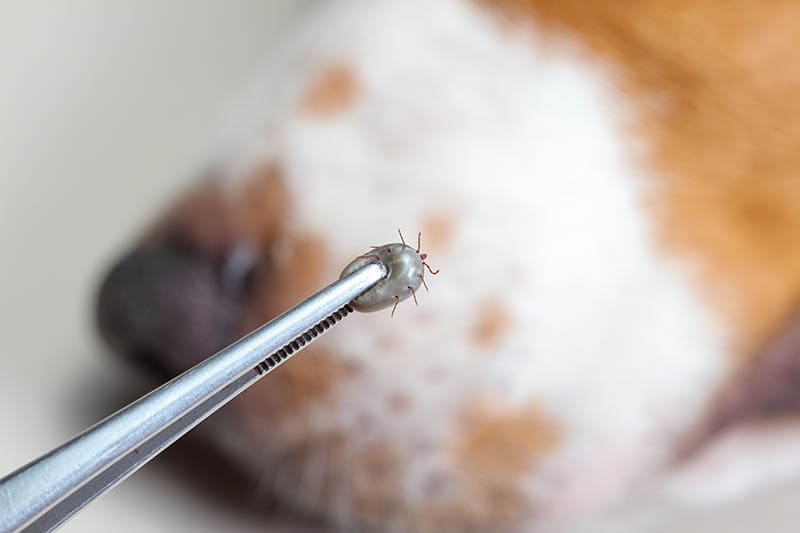
| Latin Name: | Ixodes arboricola |
| Location: | England, Scotland, Wales |
Found across mainland Great Britain, the tree-hole tick’s primary hosts are birds that nest in tree-holes, and it is found primarily in the nests. The tree-hole tick is not known to bite humans.
21. Vole Tick
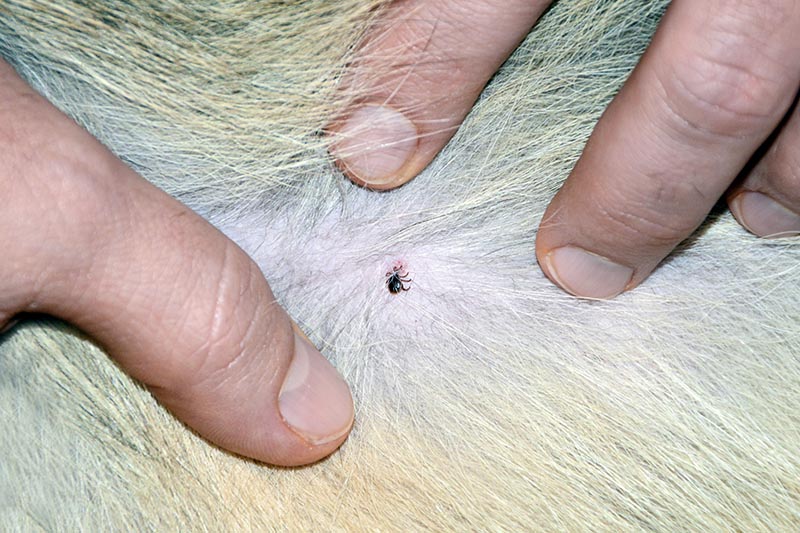
| Latin Name: | Ixodes trianguliceps |
| Location: | Nationwide |
The vole tick, which is also known as the shrew tick, can be found throughout the UK on small rodents and foxes, as well as in their nests and nearby plants and other matter. This species is not believed to bite humans.

Conclusion
Ticks are tiny insects that suck the blood of their hosts. Hosts include birds, mammals, livestock, domestic animals, and even humans, depending on the species of tick. The sheep tick is the most common species in the UK and is also responsible for the most reported bites. It can spread Lyme disease, for which there is no cure so care should be taken around the tick’s known habitats.
- http://www.visavissymposiums.org/vectors/ticks/ticks-uk-ireland/
- https://www.lymediseaseaction.org.uk/about-ticks/
- https://www.larkmead.co.uk/news/2018/tick-season-upon-us
- https://assets.publishing.service.gov.uk/government/uploads/system/uploads/attachment_data/file/1057568/Be_tick_aware_toolkit.pdf
- https://www.field-studies-council.org/2022/06/09/recording-ticks-in-the-uk-guest-blog-from-the-tick-surveillance-scheme/
Featured Image Credit: antpkr, Shutterstock
Contents
